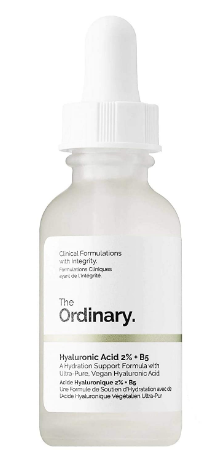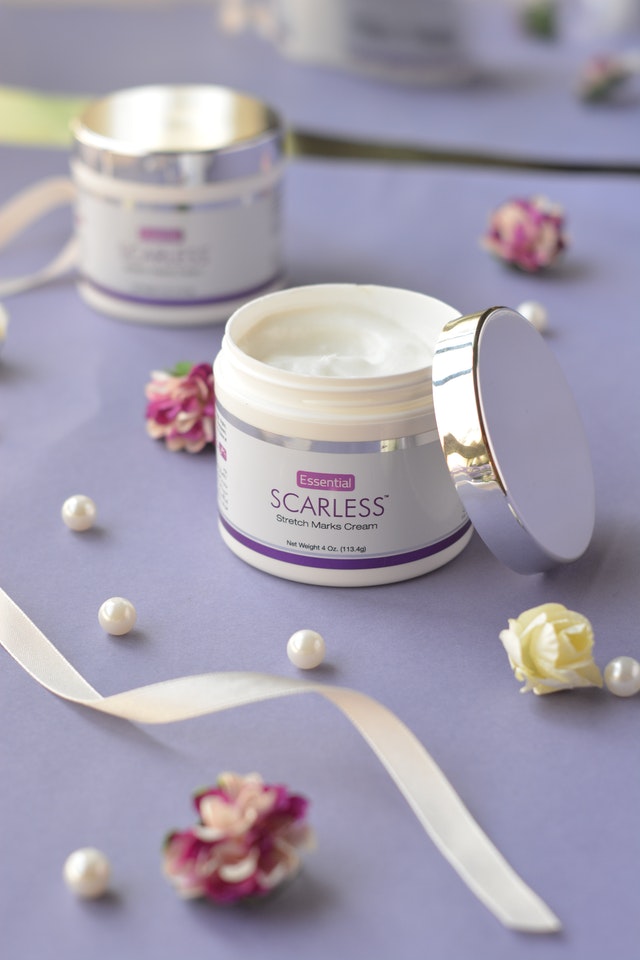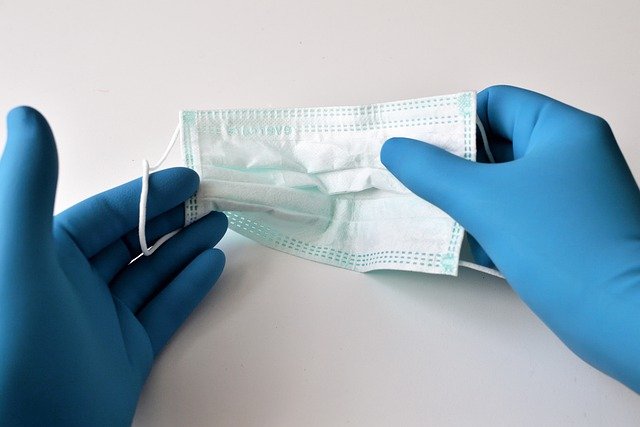Top & Best Hyaluronic acid Review 2022 – How to Select Ultimate Buyer’s Guide
Hyaluronic acid: How to choose the best one for you in 2022
Today we are going to talk about a substance that fights premature skin aging: hyaluronic acid.
Used to fight wrinkles and to fill, hyaluronic acid is so popular that today you can even find this substance in the form of creams and supplements.
In the midst of so many options, we will show you in this article what you should take into account before buying hyaluronic acid that will meet your expectations and needs.
First, the most important
- Hyaluronic acid has anti-aging properties and is therefore commonly used as a powerful anti-wrinkle.
- Medical monitoring and healthy habits are necessary to ensure the total effectiveness of treatment with hyaluronic acid.
- We will show you what are the characteristics that differentiate one product from another and how to choose the ideal hyaluronic acid.
You may also like:
- Dark circles cream: Find out all about the best products of 2022
- Wrinkle cream: How to choose the best in 2022
- Sunscreen: How to choose the best in 2022
Best Hyaluronic Acid Options: Our Recommendations
If you are looking for hyaluronic acid, you want the guarantee of the rejuvenating and repairing effects it promises for your skin, right? With that in mind, manufacturers are increasingly investing in innovations in formulas. Therefore, below, we will present you the best hyaluronic acid options available on the market today.
- Now Foods Hyaluronic Acid
- Hyaluronic Acid Redermic Hyalu C La Roche-Posay
- Hyaluronic Acid Dermo Etage Pro Eudora
- Mineral Hyaluronic Acid 89 Vichy
- Hyaluronic Acid Hialuderme 20+ Bel Col
Buying Guide
It may seem simple to buy hyaluronic acid. But with so much variety, you need to consider personal factors and the characteristics of each product to have the desired effect.
For this reason, we have created this Buying Guide with all the information you will need to make the best decision when purchasing hyaluronic acid.
What is hyaluronic acid?
Hyaluronic acid is a substance naturally present in the human body, especially in the joints, skin and eyes.
It is a sugar molecule that attracts water and, therefore, has moisturizing properties that stimulate collagen production.
Therefore, hyaluronic acid can act as a lubricant, absorbing shocks in certain parts of the body, such as the joints.
But the fact is that of all the hyaluronic acid that is present in our body 56% is found in the skin.
Therefore, its great success comes from the fact that it works by filling the space between the cells, keeping the skin smooth, elastic and well hydrated.
With aging, the production of hyaluronic acid decreases. The decrease in acid production by the body occurs from the age of 25.
This reduction directly affects the skin, causing the appearance of wrinkles, dry skin, sagging, and joint problems.
But as this substance can be produced through biotechnology, from the fermentation of bacteria, the replacement of the acid in the body can be done with the use of creams, capsules or injectable applications.
What are the benefits of hyaluronic acid?
As we have seen, hyaluronic acid is responsible for filling the spaces between cells and, therefore, it is widely used to minimize wrinkles and expression lines .
In addition, this molecule is able to keep the skin hydrated, firm and smooth. That is why this ingredient is so used in aesthetic procedures and products.
Its positive effects are also seen in healing dry and sensitive skin. The replacement of hyaluronic acid is extremely beneficial for the skin of the face and for the joints of the body.
Hyaluronic acid is able to stimulate the formation of collagen.
In addition, hyaluronic acid is also able to stimulate the formation of collagen and has anti-inflammatory properties, helping with healing. Due to its characteristics, this acid can also be used in surgeries, eye creams and in the supplementation of fluid in the joints.
Here are the main benefits of hyaluronic acid for the skin:
- Moisturizes
- Prevents premature aging
- Prevents the appearance of wrinkles and expression lines
- Controls sagging
- Prevents some types of dark circles
- Strengthens the skin
- Protects against solar radiation and pollution
What are the indications for using hyaluronic acid?
Hyaluronic acid is indicated mainly to improve the skin’s strength, smoothing wrinkles and other age marks.
But it can also be used in the contour of the face, lips, dark circles and also to restore volume of the face, hands and some regions of the body.
However, in addition to aesthetic treatments, hyaluronic acid can also be used to improve orthopedic and rheumatological processes in joints and in ophthalmology.
Thus, hyaluronic acid is indicated for those who want to:
-
- Prevent the appearance of signs of aging
- Promote skin regeneration, reducing wrinkles and blemishes
- Relieve joint pain
How to use hyaluronic acid?
Hyaluronic acid can be used in its topical form, with creams and serum; in the form of capsule supplementation; or by injection.
The following are all the ways to use hyaluronic acid and its objectives:
Dermocosmetics: The treatment is done topically, that is, applied directly to the skin creams and other cosmetics with hyaluronic acid in its composition.
The use of dermocosmetics with hyaluronic acid provides hydration, freshness and firmness to the skin.
A great advantage of this asset is that it can be used both during the day, combined with sunscreen, and at night.
Filling: Filling with hyaluronic acid is an injectable technique to replenish the volume in a certain part of the face or to smooth out deep wrinkles and dark circles .
The filling procedure should always be performed by a dermatologist, who applies local anesthesia and then injects a small amount of acid.
Nutricosmetics: Here the replacement of hyaluronic acid can be done orally, through food supplements in the form of capsules and tablets.
For this, it is necessary to consult a dermatologist who indicates the ideal dosage and formula according to your need.
What precautions should you take before using hyaluronic acid?
Before starting treatment with hyaluronic acid, you must be accompanied by a dermatologist.
Thus, the professional will be able to make an assessment of their health or aesthetic condition, in addition to clinical examinations to rule out possible contraindications.
In addition, to have an effective result with the use of hyaluronic acid, it is essential that you adopt a balanced diet.
That’s because food also influences skin health. So, choose unsaturated fats from foods like olive oil and fish, and avoid saturated fats, such as sweets and fried foods.
Another precaution that you should take is with smoking. Women who smoke tend to have more problems after any type of procedure.
In addition, smoking is associated with aging, since it releases harmful substances that increase the formation of free radicals, thus contributing to the formation of wrinkles.
It is also recommended that you avoid excessive consumption of alcoholic beverages on the eve of the treatment, especially if your choice is the application of injectable hyaluronic acid.
Experts also warn that anticoagulant drugs, such as acetylsalicylic acid and ginkgo biloba, should be avoided.
What are the side effects and contraindications of hyaluronic acid?
As this is a substance that is present in our body, in theory there are no contraindications for hyaluronic acid.
But experts warn that people with hypersensitivity to the compound, clotting problems, active skin disease, inflammation or wounds should not use hyaluronic acid.
In addition, the use of the substance can also trigger side effects, if used incorrectly or exaggerated.
Despite being a natural substance, hyaluronic acid should not be used by everyone and, if used in the wrong way, can cause health problems.
To give you an idea, creams made from hyaluronic acid can cause redness, allergies or other skin reactions.
The injectable application of the substance can cause edema, pain, itching, bruising, discoloration and tenderness.
Symptoms usually pass naturally as the days go by. But in more severe cases, necrosis, blindness, or stroke may even occur.
Can pregnant women use hyaluronic acid?
Experts agree that you should avoid using hyaluronic acid during pregnancy and the lactation period.
This is because there are still no studies that can prove the safety of using this substance during pregnancy and breastfeeding.
The only certainty for now is that in the first trimester of pregnancy the use of hyaluronic acid is prohibited.
For other periods, therefore, medical advice is essential before using this substance.
What is the relationship between hyaluronic acid, vitamin C, E and retinol?
Let’s start with what these substances have in common: the four are active anti-aging ingredients.
That is, they are ingredients that boost creams, sunscreens, serums and soaps used in skin care.
The fact is that, although there are differences between them, these substances can even be used together in the same formula to enhance the positive effects on the skin.
Check out the characteristics of each one below:
-
- Vitamin C: This nutrient gives firmness to the skin of the face. That’s because vitamin C is an antioxidant that acts as a protective, healing and stimulating photo of collagen synthesis.
- Hyaluronic acid: As we have seen, it is a powerful moisturizer for the skin and for this reason it is effective in combating wrinkles and dry skin.
- Retinol: Also known as vitamin A, Retinol renews cells and stimulates the formation of collagen, providing smooth skin with fewer blemishes. But it can cause allergic reaction or irritation.
- Vitamin E: Vitamin E, like C, is one of the most powerful antioxidants for the skin. It helps to improve the skin texture of the face, corrects the expression lines and reduces imperfections.
What is the difference between application of hyaluronic acid and botox?
Botulinum toxin A (botox) and hyaluronic acid are two of the most used procedures to combat the signs of aging on the face.
Both need diagnosis and treatment to be performed. But the fact is that the application of botox is different from filling with hyaluronic acid.
Botox is mostly used to treat the expression marks on the upper part of the face, paralyzing the muscles locally.
Filling with hyaluronic acid is used to restore volume in certain parts of the face or to attenuate deep furrows.
In addition, botulinum toxin usually lasts four to six months. The effects of the application of hyaluronic acid can last up to 2 years.
See below the main differences between hyaluronic acid and botox:
What are the advantages and disadvantages of hyaluronic acid?
As we have seen, the main advantage of hyaluronic acid is that it acts on the health of our skin.
This is because the main characteristic of this asset is its hydration power.
Another advantage of hyaluronic acid is that it helps to provide firmness, protection and support to the skin.
In addition, as we have seen, this substance is also beneficial for the joints and can still be used to perform fillings.
Another advantage is that, today, it is not necessary to resort to the injection of hyaluronic acid. You can opt for creams and even capsules of the substance.
As a disadvantage is the fact that, if used excessively or incorrectly, hyaluronic acid can cause bothersome and even serious side effects.
The following are the main advantages and disadvantages of hyaluronic acid:
Benefits
- Moisturizes and protects
- Combats wrinkles and dryness
- Used for filling
- Brightens dark circles
- Has rejuvenating effect
- Assists in lubricating joints
- Can be used topically or injectable
Disadvantages
- Too much can have side effects
- There are contraindications
How much?
The price for hyaluronic acid varies a lot according to the manufacturer brand, the dosage and the number of capsules / milliliters of the product.
The price of applying injectable acid can vary between R $ 400 and R $ 2 thousand. The cost of the product in gel, cream or capsules varies from R $ 30 to R $ 200.
Of course, you don’t have to buy the most expensive product. The most important thing is to ensure the right dosage and type of hyaluronic acid for you.
Where to buy?
You will find acid for sale in pharmacies, beauty stores, department stores.
Still, we recommend that you make your purchase at online stores like Amazon.
This way, you guarantee more options of brands and compositions to choose from. In addition, you still get acid from the comfort of your home.
Purchase Criteria: Factors to note before choosing hyaluronic acid
If you are looking for topical hyaluronic acid, you need to understand what differentiates one product from another.
This is because, with the wide variety of products with hyaluronic acid available on the market today, each product has a different purpose.
Therefore, we have listed below for you the main factors that must be taken into account before purchasing hyaluronic acid:
- Form
- Composition
- Dose
- Amount
In the following, we will explain each of these factors in detail so that you make the best decision and get the ideal hyaluronic acid.
Form
The first factor that you should note before purchasing hyaluronic acid is how the product is used.
You can choose at least five different ways to use hyaluronic acid on your skin: cream, gel, facial serum , thermal water and capsules.
The choice of this item is very personal, since there is no evidence of difference in effectiveness between them.
But in general, the cream and the gel with hyaluronic acid are powerful moisturizers, which leave the skin firmer and less dry.
In this case, the most common is to find the acid combined with other vitamins, as we will see in the next topic. Still, be aware of the texture of the cream which should be light and not oily.
If you prefer hyaluronic acid in its pure form, the recommendation is to use the serum, which is a product with a light and watery texture.
The advantage of the serum is that the application is more targeted at specific areas of the face.
In addition, there is a novelty that is the thermal water fortified with hyaluronic acid, thus increasing the skin’s rejuvenating properties.
Finally, there is the option of a supplement to be taken in capsule form.
In this case it is important that you have the monitoring of your doctor who will determine the most appropriate dose.
Composition
Then take into account the composition of the product. As we have seen, the formula can be pure, containing only hyaluronic acid or combined with other substances, especially those that are antioxidants.
It is very common, for example, to find hyaluronic acid combined with sunscreen, vitamin C, elastin, collagen, zinc or magnesium .
There are other options that offer in its composition l-proline, which is an indispensable amino acid for collagen synthesis; and alpha lipoic acid and grape seed extract, both also active antioxidants.
Dose
Another factor that you should watch out for before buying hyaluronic acid, especially if you choose the supplement form in capsules, is the dosage.
In general, it is recommended to consume one tablet a day. But the dose of hyaluronic acid present in the capsules can vary between 20mg and 150mg.
This variation occurs because, as we have seen, the decrease in hyaluronic acid in our body occurs as we get older.
Therefore, you will also find products that indicate the recommended use according to age.
Anyway, the indicated dose varies from person to person, according to age and health condition and must be defined by your average.
Amount
Finally, we recommend that you also check the quantity present in the product. This will reflect on the final cost of the product and the period in which you will use the acid.
In the version of hyaluronic acid in cream, gel or serum this amount can vary between 30ml and 200ml.
In the form of tablets, you can find bottles containing between 30 and 120 capsules.
best hyaluronic acid serum
best hyaluronic acid supplements
best hyaluronic acid moisturizer
best hyaluronic acid cream
best hyaluronic acid serum with vitamin c
what does hyaluronic acid serum do
pure hyaluronic acid serum
best hyaluronic acid on amazon
Which is the best hyaluronic acid?
What percentage of hyaluronic acid is best?
Which is better hyaluronic acid or retinol?
What step should hyaluronic acid be?
Which face cream has the most hyaluronic acid?
Is vitamin C or hyaluronic acid better?
Should I use hyaluronic acid every day?
Do you rub in hyaluronic acid?
Do you put hyaluronic acid on before or after moisturizer?
What should you not mix with hyaluronic acid?
What is the best anti aging cream on the market?






